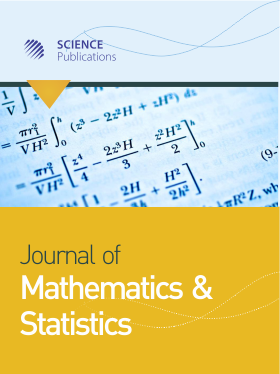Two-Stage Estimation in Inverse Problems using Combined Wavelet Thresholding and Penalized Maximum Likelihood
- 1 University of Leeds, United Kingdom
Abstract
Inverse problems occur in a wide range of practical scientific investigations where the variables of interest are only observed indirectly, such as magnetic and seismic imaging in geophysics, electrical tomography in industrial process monitoring, or PET scanning in medicine. Linear inverse problems can be thought of as highly multivariate regression problems with strong multicollinearity where the aim is to interpret regression parameters-prediction is not of interest. Estimation, to give a fitted model, is known as an inverse problem which can be ill-posed and ill-conditioned, making estimation using least-squares or maximum likelihood unstable or even impossible. Instead, one approach is to introduce additional constraints through a penalty term and a penalized least-squares or penalized maximum likelihood approach taken. The major cause of numerical problems in the estimation is noise in the data and hence using a pre-processing which reduces noise may be helpful. Wavelet thresholding has proven to be highly efficient at separating useful information from noise but there has been very little work considering the use of wavelet methods for inverse problems. Hence it is of great interest to investigate the usefulness of this as an additional step in estimation for inverse problems. In particular a two stage process is proposed combining inversion and wavelet thresholding. The thresholding will be considered as either a pre-inversion or post-inversion filter and the results compared. A simulation investigation is described and reported which compares these two alternative, and also which uses a minimum mean-squared error approach to choose the penalty parameter, in the inversion, and the threshold, in the wavelet thresholding, either sequentially or jointly. The results demonstrate that a combined approach is worthwhile and that for the piecewise constant test function considered, it is better to post-process after the inversion step than it is to use the more intuitive wavelet thresholding pre-processing step for noise reduction before inversion. This new approach hence has the potential to enhance the estimation results in a wide range of applied inverse problems.
DOI: https://doi.org/10.3844/jmssp.2017.292.305

- 4,136 Views
- 1,717 Downloads
- 0 Citations
Download
Keywords
- Inverse Problems
- Penalized Likelihood
- Wavelet Thresholding
